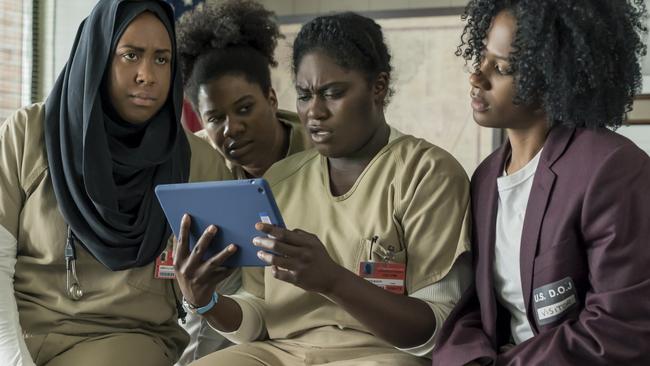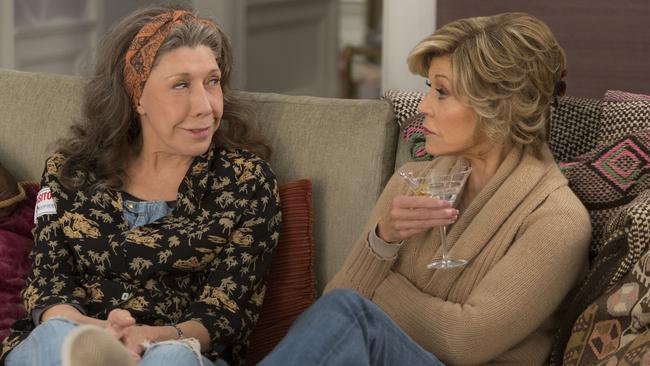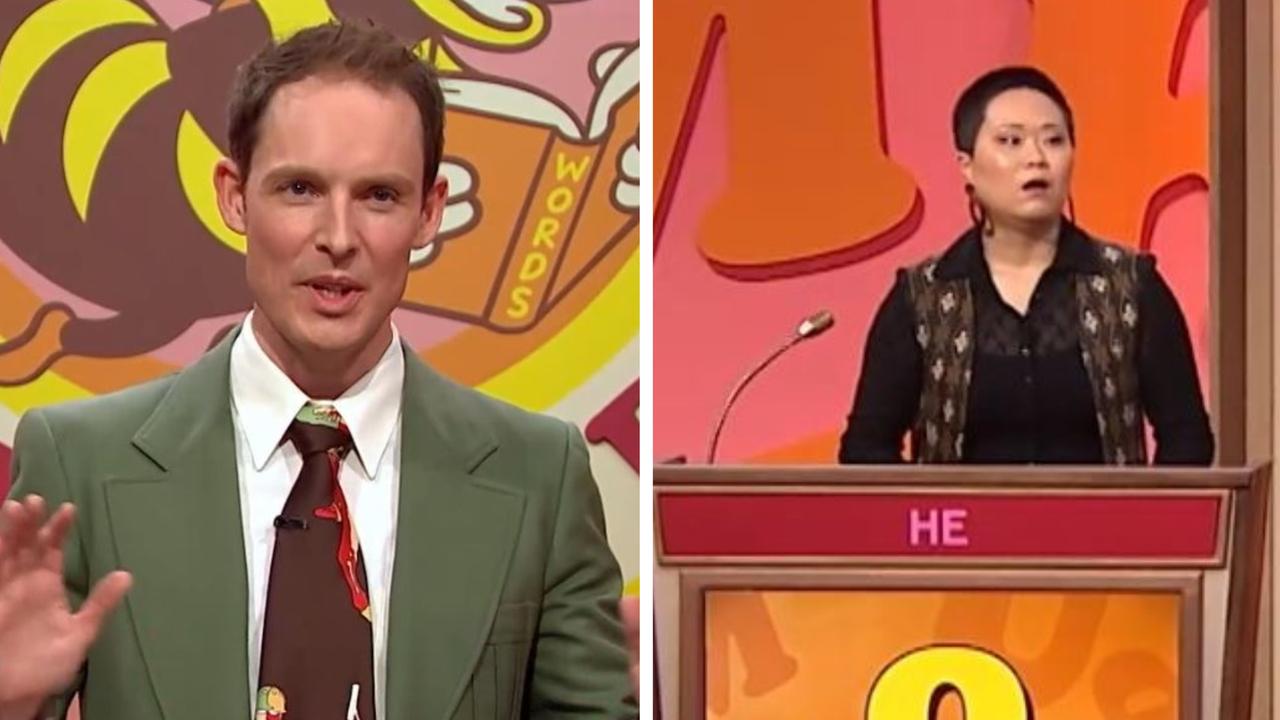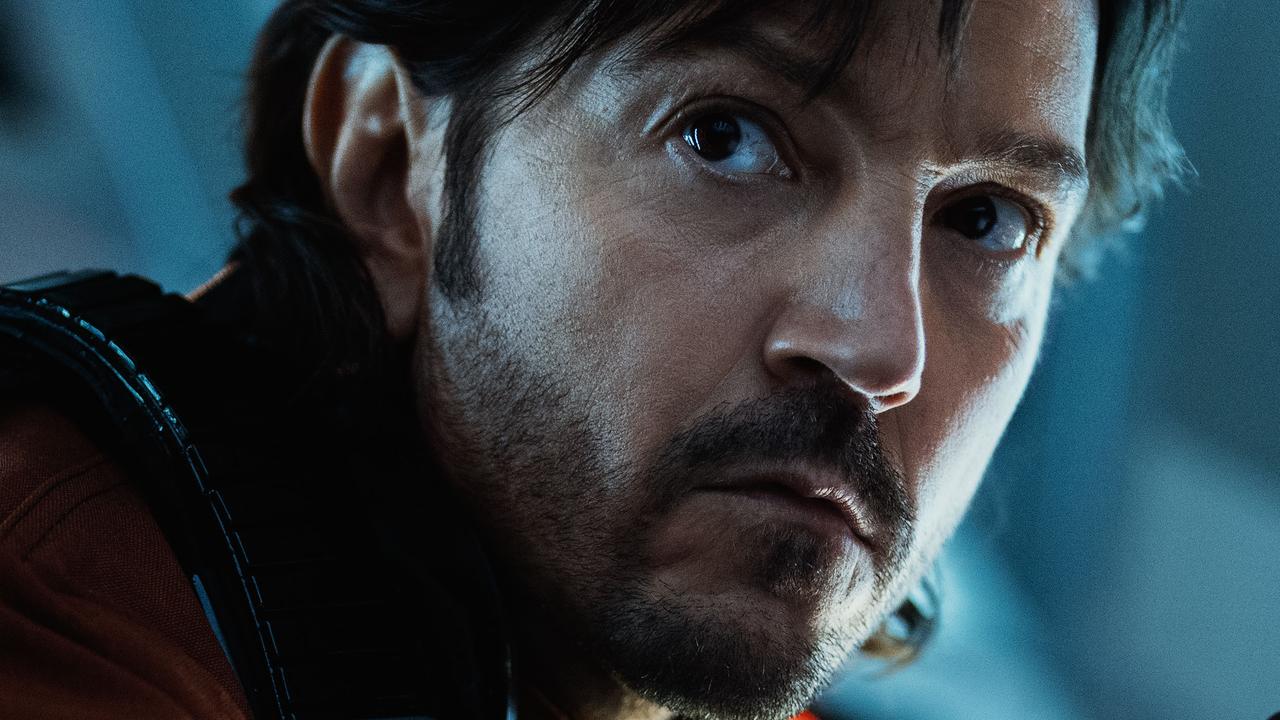The new ‘trend’ driving TV today
OVER the last few years, something has been happening on TV — it’s finally started to properly acknowledge half the population.
IT feels flippant to call it a trend. Women aren’t a trend.
But there’s been a definite move towards more female-led and female-created TV shows in recent years. It’s almost as if TV bosses finally realised that women make up half the population and would like to see themselves reflected on TV as fully formed characters rather than as window dressing.
Shocking, isn’t it?
Now we have a slate of TV with multifaceted female characters who are flawed and joyful, including the likes of Orange is the New Black, Girls, The Girlfriend Experience, GLOW, Grace and Frankie, Unbreakable Kimmy Schmidt, Search Party, UnReal and Insecure.
What’s remarkable about those shows is that they were all created or co-created by female writers.
A commitment to female and multicultural voices in front of and behind the camera is something Netflix wants to emphasise, Cindy Holland, vice president of original programming, told news.com.au.
“We want to provide programming that’s reflective of our audience. Even with our first lot of programming in 2013, Orange was something that stood out to us as having strong female characters.
“We’re constantly on the search for great programming that’s by, for and about women. We’re just fortunate that in this period of time, we’re able to launch a number of series, approximate to each other. Any time we can encourage people to take risks and try new things, break down the conventional wisdom of the kind of programming that can succeed, we’re all for it.
“We’ve been patient and finding great female stories by predominantly female voices, most recently with GLOW and Gypsy and even with some foreign language series such as Las chicas del cable (Cable Girls) coming out of Spain.
“Audiences are hunkering for a community that they can relate to and characters they can identify with and root for. They’re looking for an empowering series.”

Female-driven TV shows aren’t exactly “new”. Series like Murphy Brown and The Mary Tyler Moore Show blazed the trail. But there does seem to be more of an avalanche at the moment, which could in part be credited to the sheer volume of scripted TV in production.
Holland said the company also works with producers on its existing shows to expand the diversity of the team behind the camera. Notably, the final six episodes of House of Cards season five were directed by women, with Robin Wright taking charge of two. House of Cards now also has a female co-showrunner in Melissa Gibson, who, with Frank Pugliese, took over when creator Beau Willimon left.
One of the common threads of many of these shows is that the female friendships, while not frictionless, have been about warmth and support, rather than the backstabbing and petty dynamic women have often been tagged with.
Asked if it was a strategy on the part of Netflix to promote positive female relationships on screen, Holland responded: “It’s not an explicit strategy on our part but I think it certainly is on the part of our creators and the audiences are responding to that.
“It was clear from the first meeting we had with [Grace and Frankie stars] Jane [Fonda] and Lily [Tomlin] that these are two women who have known each other for decades had mutual respect and admiration for each other, and that as soon as turned the camera on, that would show through and audiences would love them for it.”
But the diversity question isn’t only about female representation — it’s also about cultural representation, something that has been pushed through the casts of Orange is the New Black and GLOW, both produced by Jenji Kohan. Cultural diversity is particularly important for a company whose customer base is global (with the exception of China, North Korea, Syria and Crimea).

To that, Holland also pointed to Dear White People, which wasn’t created by a woman but features at the centre of its story, a female African-American character, the upcoming Spike Lee TV series, She’s Gotta Have It, based on his 1986 film, and Ingobernale, a Mexican political drama starring Kate del Castillo.
One series that doesn’t get name-checked by Holland is Girlboss, despite its impressive female-driven pedigree. The series starred Britt Robertson, was created by Kay Cannon and produced by Charlize Theron, based on Sophia Amoruso’s book of the same name.
It was, however, cancelled not long after its first season dropped earlier this year. The show received tepid reviews and was mired in Amoruso’s real-life bankruptcy scandal, which erupted well after the series was in production.
Girlboss is one of the few Netflix originals to have gotten the chop, the other prominent ones being Sense 8 (after two seasons, though there is an upcoming movie special), The Getdown (one season), Bloodline (three seasons) and Marco Polo (two seasons).

Netflix’s recent spate of cancellations was brought to the fore when chief executive Reed Hastings said publicly that the network needed to cancel more shows. Holland said Hastings’ comment was taken slightly out of context and that he was referring to the ethos that you shouldn’t be afraid to try things and fail — that the company hadn’t tried enough because it hadn’t failed enough because they hadn’t cancelled enough.
“There’s not an explicit agenda to cancel shows. It’s more the opposite, it’s an explicit agenda to try a lot of really ambitious things and don’t be afraid to have them fail.”
Netflix is notoriously private about viewership numbers on individual programs and doesn’t even share them with a show’s producers or writers.
“I think [producers] get a really clear indication by the reception in the Zeitgeist and on social and word-of-mouth in their own circles. They generally know when a show is working or not working, and we do help contextualise how they’re doing.”
Holland said that while the average cancellation rate for American broadcast networks sits on average around 60 per cent, and at roughly a third for premium cable like HBO, Netflix’s cancellation rate so far is 7 per cent.
GLOW, Orange is the New Black, House of Cards, Unbreakable Kimmy Schmidt, Grace and Frankie, Gypsy, Girlboss, Ingobernale, Dear White People and Cable Girls are streaming on Netflix. The Girlfriend Experience and UnReal are streaming on Stan. Search Party is streaming on SBS on Demand. Insecure and Girls are streaming on Foxtel Now.
Continue the conversation on Twitter with @wenleima.



